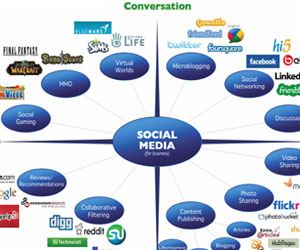


Online Business Challenges And Solutions

In today's fast-paced digital landscape, online businesses are flourishing, but they are not without their fair share of challenges. To achieve sustained success in the online world, entrepreneurs must be prepared to tackle these obstacles with effective solutions. In this article, we will explore common online business challenges and provide solutions to overcome them.
1. Fierce Competition:
Challenge: The digital marketplace is crowded, with intense competition in almost every niche.
Solution: Differentiate your online business by offering unique value, quality products, or exceptional customer service. Develop a strong brand identity to stand out from the competition.
2. Cybersecurity Threats:
Challenge: Online businesses are vulnerable to cyberattacks, which can result in data breaches and loss of customer trust.
Solution: Invest in robust cybersecurity measures, use SSL encryption, regularly update software, and educate your team about online security best practices.
3. E-commerce Platform Selection:
Challenge: Choosing the right e-commerce platform is crucial, as the wrong choice can lead to technical difficulties and limitations.
Solution: Carefully evaluate various e-commerce platforms based on your business's specific needs. Consider factors like scalability, ease of use, and available features.
4. Customer Trust And Credibility:
Challenge: Building trust and credibility can be challenging, especially for new online businesses.
Solution: Establish a professional online presence, provide transparent policies, collect and showcase customer reviews and testimonials, and use trust badges to reassure customers.
5. Search Engine Optimization (SEO) And Visibility:
Challenge: Ranking high in search engine results is vital for attracting organic traffic.
Solution: Invest in SEO best practices, including keyword research, on-page optimization, and quality content creation. Regularly update your website with fresh content and seek backlinks from authoritative sources.
6. Conversion Rate Optimization (CRO):
Challenge: Converting website visitors into customers can be difficult.
Solution: Conduct A/B testing to identify what works best for your website and make data-driven changes to improve conversion rates. Optimize product descriptions, call-to-action buttons, and the checkout process.
7. Shipping And Fulfillment:
Challenge: Efficient and cost-effective shipping and fulfillment can be a logistical challenge for online businesses.
Solution: Partner with reliable shipping carriers, explore cost-effective shipping options, and consider using third-party fulfillment services to streamline operations.
8. Technology Updates And Maintenance:
Challenge: Keeping up with technology updates and maintaining a functional website can be time-consuming.
Solution: Regularly update your website, plugins, and software. Consider automating routine maintenance tasks to save time and reduce the risk of technical issues.
9. Customer Service And Communication:
Challenge: Providing timely and effective customer service can be demanding.
Solution: Implement chatbots, FAQs, and clear communication channels to address customer inquiries promptly. Build a responsive customer service team that can handle customer issues efficiently.
10. Marketing And Advertising Costs:
Challenge: Marketing and advertising expenses can escalate quickly.
Solution: Create a well-defined marketing strategy that focuses on cost-effective channels like content marketing, email marketing, and social media advertising. Continuously monitor your advertising campaigns and adjust your budget to optimize results.
Online businesses must anticipate and address these challenges proactively. By implementing these solutions and remaining adaptable in the dynamic digital landscape, you can navigate the complexities of online business and work towards long-term success. While challenges may arise, they provide opportunities for growth and improvement in your online venture.
 Benefits Of Niche Marketing In The Digital Landscape
Benefits Of Niche Marketing In The Digital Landscape
Cost-Efficiency: One of the primary benefits of niche marketing in the digital landscape is cost-efficiency. Traditional mass marketing often requires significant financial resources to reach a broad audience. In contrast, niche marketing allows you to focus your resources on a smaller, highly targeted group, reducing wasted marketing spend.
Higher Conversion Rates: By addressing the specific needs and preferences of a niche audience, your message resonates more strongly. This increased relevance leads to higher conversion rates, as the audience is more likely to engage and make a purchase.
Competitive Advantage: Niche marketing enables you to establish a competitive edge. In a crowded digital marketplace, standing out can be challenging. Focusing on a specialized segment can help your business become a recognized expert in that niche, building trust and loyalty among consumers.
Improved Customer Loyalty: Niche marketing often leads to stronger customer relationships. When your products or services genuinely address the unique pain points or desires of a specific audience, you foster loyalty and repeat business.
Data-Driven Insights: The digital landscape provides an abundance of data that you can use to refine your niche marketing strategies. Analytics tools offer valuable insights into consumer behavior and preferences, enabling continuous improvement of your approach.
Implementing Niche Marketing Online
To succeed in niche marketing within the digital landscape, businesses must follow a structured approach:
Market Research: Identify potential niche markets by conducting thorough research. Look for gaps in the market, unmet needs, or underserved customer segments.
Tailored Messaging: Craft personalized and relevant messaging that speaks directly to the niche audience's pain points and desires.


A Roadmap To Business Success
 Why Is Strategic Niche Selection Important?
Why Is Strategic Niche Selection Important?
Reduced Competition: One of the primary advantages of niche selection is the opportunity to operate in a less crowded space. By focusing on a specialized market segment, you face less direct competition, making it easier to capture the attention of potential customers.
Customer Relevance: Targeting a niche allows you to tailor your products or services to meet the specific needs and preferences of a particular audience. This personalization increases customer relevance, leading to higher customer satisfaction and loyalty.
Higher Profit Margins: Niche markets often allow for higher profit margins because customers within these segments are often willing to pay a premium for specialized products or services that address their unique requirements.
Expertise And Authority: When you specialize in a niche, you have the opportunity to become an expert in that field. Establishing yourself as an authority can significantly enhance your brand's reputation and trustworthiness.
How To Select The Right Niche Strategically
Market Research: Thorough market research is the foundation of strategic niche selection. Identify potential niches by analyzing market trends, consumer behavior, and gaps in the market. Look for underserved areas where your business can thrive.
Customer Segmentation: Divide your target market into distinct segments based on characteristics such as demographics, preferences, and behavior. Understand the unique needs and pain points of each segment to pinpoint the most promising niche.
The Art Of Collaborative Success
 Cost-Effective Marketing: For businesses, affiliate marketing is a cost-effective way to reach a broader audience. Rather than bearing the upfront costs of advertising, they only pay commissions when sales are made, making it a highly efficient marketing strategy.
Cost-Effective Marketing: For businesses, affiliate marketing is a cost-effective way to reach a broader audience. Rather than bearing the upfront costs of advertising, they only pay commissions when sales are made, making it a highly efficient marketing strategy.
Targeted Marketing: Affiliates often have well-defined target audiences. This enables businesses to tap into niche markets and reach potential customers who are genuinely interested in their products or services.
Transparency And Trust: Transparency and trust are vital in affiliate marketing. Affiliates must disclose their relationship with the business they are promoting, and businesses must be transparent about commission structures and payments. Maintaining trust with the audience is crucial.
Best Practices In Affiliate Marketing
Choose The Right Partners: Select affiliates who align with your brand and target audience. The better the alignment, the more successful the partnership is likely to be.
Clear Agreements: Establish clear and comprehensive affiliate agreements that outline commission structures, payment terms, and guidelines for promoting your products or services.
Provide Quality Marketing Materials: Offer affiliates high-quality marketing materials, such as banners, links, and product information. These tools will help affiliates effectively promote your offerings.
Regular Communication: Stay in touch with your affiliates. Regular communication helps build a strong working relationship and ensures everyone is on the same page.
 Performance-Based Compensation: Affiliates are compensated based on their performance, making it a highly incentivized model. This leads to increased motivation and a focus on results.
Performance-Based Compensation: Affiliates are compensated based on their performance, making it a highly incentivized model. This leads to increased motivation and a focus on results.
Access To Niche Markets: Affiliate marketers often have well-defined niches, making it easier for businesses to target specific audience segments. This is particularly advantageous for products or services tailored to niche markets.
No Inventory Or Customer Support: Affiliate marketers don't have to deal with product inventory, order processing, or customer support. These responsibilities rest with the product or service provider, reducing the affiliate's workload.
Cons Of Affiliate Marketing Strategies
Competition: The affiliate marketing landscape is fiercely competitive. Affiliates often vie for the same audience and affiliate programs, making it challenging to stand out. Newcomers may struggle to gain a foothold in the market.
Building And Nurturing An Audience: Success in affiliate marketing relies on building and nurturing a loyal audience. This takes time and consistent effort. It can be challenging to attract and retain a dedicated following.
Regulations And Compliance: Affiliate marketers must navigate advertising and affiliate marketing regulations, which can vary by region and platform. Staying compliant is essential to avoid legal issues.
Attribution Challenges: Accurately attributing conversions to the right affiliate can be complex. Tracking the source of conversions and ensuring fair commission distribution can be a challenge, especially with multiple marketing channels.






Maximizing Earnings From Your Passion
 2. Display Advertising: Display advertising is a passive income strategy that involves placing ads on your blog. Platforms like Google AdSense offer bloggers the opportunity to earn revenue based on ad clicks and impressions. While it doesn't generate significant income in the early stages, it can become more lucrative as your blog's traffic grows.
2. Display Advertising: Display advertising is a passive income strategy that involves placing ads on your blog. Platforms like Google AdSense offer bloggers the opportunity to earn revenue based on ad clicks and impressions. While it doesn't generate significant income in the early stages, it can become more lucrative as your blog's traffic grows.
3. Sponsored Content: Collaborating with brands for sponsored content is another profitable strategy. Companies pay bloggers to create content that promotes their products or services. It's crucial to maintain transparency and ensure that sponsored content aligns with your blog's niche and appeals to your audience.
4. Selling Digital Products: Many bloggers have expertise in their respective niches. They can create and sell digital products like e-books, online courses, templates, or printables. These products offer bloggers a source of passive income while providing value to their audience.
5. Membership And Subscription Models: Platforms like Patreon and Substack allow bloggers to offer premium content, exclusive perks, or early access to subscribers who pay for membership. This model can create a loyal following and provide a steady source of income.
6. Consultation And Coaching Services: If you've established yourself as an authority in your niche, consider offering consultation or coaching services to your readers. Many individuals are willing to pay for personalized guidance and insights from someone they trust.
7. E-commerce And Merchandise: Some bloggers turn their blogs into e-commerce platforms, selling physical merchandise related to their niche, such as branded products, apparel, or accessories. This approach not only generates income but also helps build brand loyalty.
 2. Offer Uniqueness: In a competitive market, standing out is crucial. Your offers should be unique and distinct from those of your competitors. Highlight what sets your products or services apart, whether it's quality, innovation, or a special feature.
2. Offer Uniqueness: In a competitive market, standing out is crucial. Your offers should be unique and distinct from those of your competitors. Highlight what sets your products or services apart, whether it's quality, innovation, or a special feature.
3. The Power Of Personalization: Irresistible offers often come from personalization. Tailor your offers to match the preferences and behaviors of individual customers. Leverage data and analytics to segment your audience and provide them with offers that feel like they were created just for them.
4. Create A Sense Of Urgency: A time-limited offer can create a sense of urgency that drives potential customers to take action. Limited-time deals, exclusive discounts, and countdowns can make your offer more compelling. However, it's crucial to be transparent and deliver on the promises made.
5. Test And Optimize: Crafting irresistible offers is an ongoing process. Regularly test different offer variations to understand what works best. Experiment with pricing strategies, bundle deals, and added bonuses to see which resonates most with your audience. Use the data from these tests to refine and optimize your offers.
6. Leverage Social Proof: Showcasing positive reviews, testimonials, and endorsements can boost the credibility of your offers. When potential customers see that others have had a positive experience with your products or services, it instills trust and encourages them to act.
7. Highlight Value Over Price: While discounts and low prices are enticing, the value your offer provides should be the focal point. Highlight the benefits and outcomes customers will experience when they take advantage of your offer. Demonstrating how your offer improves their lives can be more persuasive than just a lower price.
8. Transparent Terms And Conditions: Clarity and transparency in your offers build trust. Ensure that your terms and conditions are clear and easy to understand, with no hidden fees or surprises. Clearly communicate what customers will receive and be upfront about any limitations.